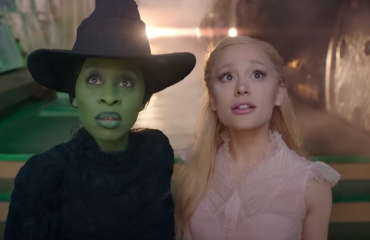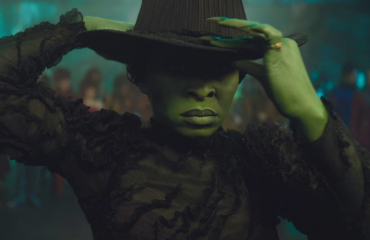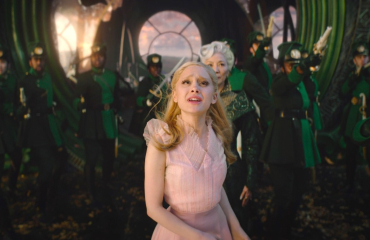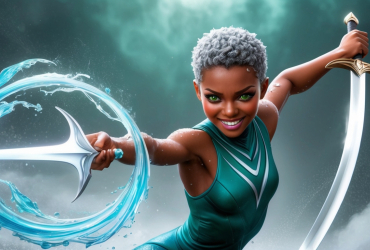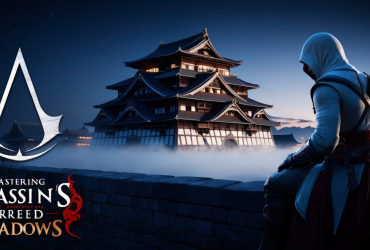- 03-12-2024
Wicked
The world of Wicked is a vibrant tapestry woven together with themes of friendship, political strife, and societal norms. Based on Gregory Maguire's 1995 novel, "Wicked: The Life and Times of the Wicked Witch of the West," this story offers a fresh perspective on the Oz characters, presenting them in a more intricate and shadowy narrative than the traditional "The Wizard of Oz." At the heart of the story are Elphaba, often seen as the misunderstood Wicked Witch of the West, and Glinda, the Good Witch, whose interconnected lives question the conventional views of good and evil.
The Musical Phenomenon
Following the success of the novel, the story took on a new life when it was adapted into a Broadway musical in 2003. Featuring music by Stephen Schwartz and a script by Winnie Holzman, the musical has achieved great success, ranking among the longest-running productions in Broadway's storied history. Its blend of humor, touching moments, and soaring musical numbers captivated audiences and cemented Wicked's status as a cultural phenomenon.
Character Analysis: Elphaba
Elphaba, the central character of Wicked, serves as a profound exploration of identity and morality. Often depicted as a paragon of resistance against societal expectations, Elphaba's deep-seated connection to her ideals and sense of justice delineates her path throughout the story. Her green skin, a symbol of difference, evokes the themes of prejudice and the struggle against conformity, making her a relatable and compelling character.
Character Analysis: Glinda
In stark contrast to Elphaba, Glinda represents the allure and challenges of privilege. Starting as a bubbly socialite, Glinda evolves over the course of the narrative, revealing layers of complexity beyond her initially shallow façade. Her friendship with Elphaba, marked by moments of rivalry and reconciliation, highlights the themes of loyalty and personal growth, demonstrating that even individuals cloaked in privilege can face moral dilemmas.
The Setting of Oz: A Deeper Look
The Land of Oz transcends a mere backdrop; it functions as a character in its own right, with its colorful landscapes and diverse societies reflecting the myriad of challenges faced by its inhabitants. The environment serves to accentuate the political dynamics between different factions and the complicated history between the citizens of Oz and the external powers, notably the Wizard and his oppressive regime.
Exploring Themes of Friendship
At its heart, Wicked is a tale about friendship that navigates the trials and tribulations of human relationships. Elphaba and Glinda's friendship encapsulates the tension that exists between differing priorities, moralities, and dreams. Their changing relationship prompts important inquiries into loyalty and the sacrifices required for loved ones, illustrating how friendships can provide strength while also causing tension.
Political Reflections in Wicked
The narrative also serves as a social commentary on political power and the implications of governance. The Wizard of Oz, an ostensibly benevolent ruler, is unveiled as a manipulative figure who maintains control through fear and deceit. This exploration of authoritarianism resonates with contemporary audiences, prompting reflections on the nature of power and the responsibilities of leadership.
The Role of Identity
Wicked delves deeply into issues of identity, particularly how societal pressures shape self-image and personal choices. Elphaba's struggle to embrace her uniqueness amid societal condemnation is mirrored in Glinda’s journey toward authenticity. The dichotomy between their public personas and private selves emphasizes the complicated nature of personal identity in the face of external expectations.
Impact of Magic in the Storyline
The presence of magic in Wicked is both literal and metaphorical, serving as a means for characters to explore their capabilities and fight against systemic oppression. Elphaba’s ability to manipulate magic, coupled with Glinda's experiences, raises questions about the ethics of power and the duality of magic as a source of both good and evil, emphasizing that the intention behind one's actions is what ultimately defines their morality.
The Musical Score and Notable Songs
The musical score of Wicked has become legendary, with songs such as "Defying Gravity" and "For Good" resonating deeply with audiences. The powerful themes within these songs encapsulate the emotional depths of the character arcs and the narrative’s essence. The evocative melodies and poignant lyrics have solidified their place in musical theater history, reflecting the characters' struggles and triumphs.
Production Design and Visual Aesthetics
The production design of Wicked is one of its standout features, with lavish sets and striking costumes that bring the world of Oz to life. The vibrant colors and imaginative interpretations of iconic elements from the Wizard of Oz create a visually stunning experience that complements the narrative. Every visual component plays a role in unfolding the narrative, drawing the audience into an imaginary yet relatable world.
Reception and Cultural Impact
Wicked has enjoyed unparalleled success both financially and critically, receiving numerous accolades and awards. Its cultural impact extends beyond the stage, influencing popular culture, fashion, and education. The story’s exploration of themes such as acceptance, empowerment, and the complexities of moral choice continues to resonate with diverse audiences, inspiring discussions around societal norms and personal responsibility.
Film Adaptation of Wicked
The anticipated film adaptation of Wicked has stirred excitement and curiosity among fans. With a star-studded cast and direction by Jon M. Chu, the film promises to bring the beloved characters and story to a wider audience. As with any adaptation, challenges arise in translating the depth of the musical experience into a cinematic format while maintaining the essence of the source material.
Fan Community and Fandom
The fandom surrounding Wicked is a testament to its enduring appeal. Fans have congregated across social media platforms and dedicated spaces to share their passion, art, and interpretations of the work. This community not only celebrates the show but also explores its deeper meanings, creating a dialogue that enriches the experience for both new and longtime enthusiasts.
Future Prospects for Wicked
Wicked's legacy appears secure as new generations discover the story. The continued interest in adaptations, whether theatrical or cinematic, suggests that its exploration of timeless themes will resonate for years to come. Productions around the world celebrate the musical, ensuring that Elphaba and Glinda's journey endures within popular culture, inspiring discussions on acceptance and individuality.
Exploring the Legacy of Oz
The Wicked narrative expands the already established lore of Oz, providing a richer experience for those familiar with L. Frank Baum's original stories. By incorporating familiar elements yet presenting them through a unique lens, Wicked offers a re-contextualization that invites audiences to reconsider their understanding of classic tales and their characters, keeping the spirit of Oz alive in the modern context.
The Legacy of Friendship in Wicked
The enduring message about friendship depicted in Wicked reiterates the value of empathy and understanding in a world marked by division. As Elphaba and Glinda navigate their inner conflicts, the narrative inspires individuals to embrace their differences and acknowledge the power of reconciliation. By illustrating these themes, Wicked ultimately leaves its audience with profound insights into human connection.
Conclusion of Wicked's Story
As Wicked continues to captivate hearts worldwide, its exploration of multifaceted characters, societal norms, and the essence of humanity remains relevant. Whether experienced through the pages of the novel, the grandeur of the musical, or the anticipated film adaptation, the story resonates profoundly with audiences, reminding us of the importance of understanding and acceptance against the backdrop of a world rich with complexity and challenge.
Pros
- Unique Perspective on a Classic Tale
- Exceptionally rich character development that adds depth
- Breathtaking musical score with memorable songs
- Visually stunning production design and costumes
- Thought-provoking themes about friendship and identity
- Strong social commentary on power and oppression
Cons
- Character arcs may feel rushed at times
- Some fans of the original "Wizard of Oz" may dislike the reinterpretation
- Complex themes might not resonate with younger audiences
Screenshots
